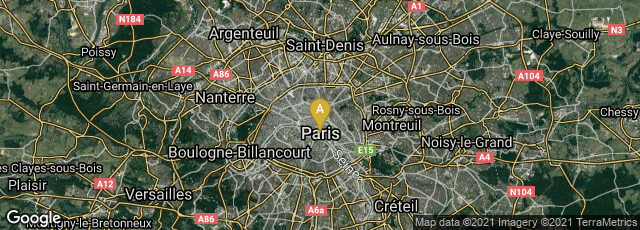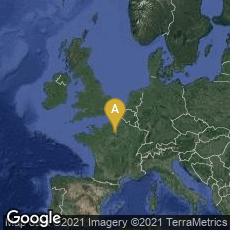

A: Paris, Île-de-France, France
In 1802 French civil engineer François Antoine Rauch published in Paris a 2-volume work entitled Harmonie hydro-végétale et météorologique: ou recherches sur les moyens de recréer avec nos forêts la force des températures et la régularité des saisons par des plantations raisonnées.
Concerned with the disastrous effects of deforestration, which not only affected the agriculture and scenery of the countryside, but also the whole ecological balance of crops, flora and fauna, and human interaction with the ecological system, Rauch discussed the interrelationships between climate, terrain and vegetation, and suggested ways to establish a state of harmony between man and the the environment. He included topics such as the ecological balance found in mountain regions, and suggested in the final chapter, that a ministerial department "of the interior" be set up in order to monitor ecological issues and supervise relevant matters at a local level.
Rauch espoused many ideas to achieve such a 'harmony', including plans for monumental avenues flanked by grand trees and country roads edged by fruit trees. He was also particularly concerned with cemeteries and graves, believing that the dead would rest easier in a 'natural' environment and recommended burial in "natural" places.
Over the following sixteen years Rauch made many further observations which resulted in a considerably revised, augmented and updated 2-volume work published in 1818 entitled Régénération de la nature végétale, ou recherches sur les moyens de recréer, dans tous les climats, les anciennes températures et l'ordre primitif des saisons, par des planations raisonnées, appuyées de quelques vues sur le ministère que la puissance végétale semble avoir a remplir dans l'harmonie des éléments. Writing from a viewpoint in agreement with the modern ecology movement, Rauch argued that it is necessary to reverse the process of human destruction of the environment, particularly the world-wide destruction of forests, in order to return the planet to a state better supportive of life.
Rauch began with a consideration of the relationship of forests to weather conditions, surveyed the effects of deforestation world-wide on climate, and animal and human populations, and set out in several chapters steps to be taken: what sorts of vegetation should be planted where, renewal of water sources, and the establishment of governmental agencies in France and all over the globe to observe the environment and take action. He urged the agencies, for example, to consider changes over short periods of time ("to what extant animals and birds are scarcer in the last thirty years" in a particular area), and to attempt regulation of factory fuel sources. In his closing argument he urged the obligation "to conserve the noble economy," and "to conserve that from which we benefit."
On April 1821 Rauch began publication of a periodical entitled Annales europeenes de physique végétale et d'économie publique. This continued through 1827.